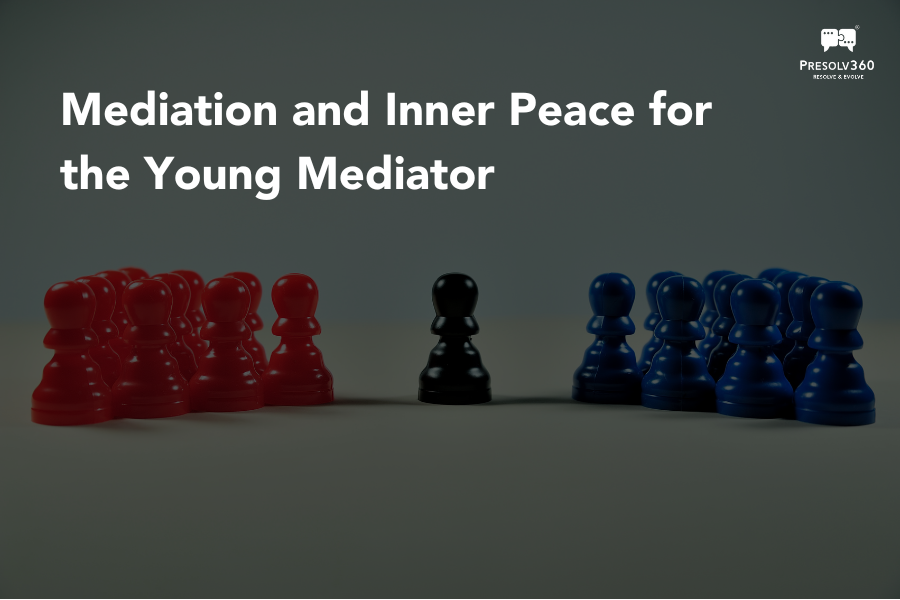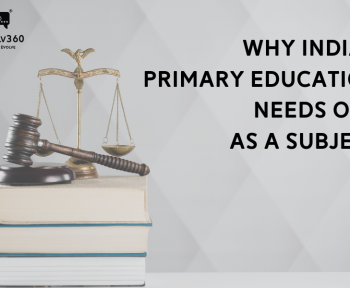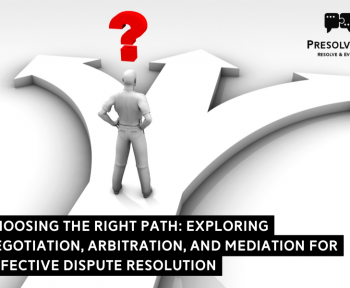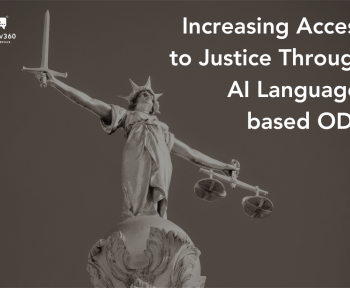By Vaibhavi Khuthia and Shikha Mehra
The journey of an advocate isn’t an easy one. It takes years of academic study, and then one joins the profession. We rightly call it a ‘practice’ – one keeps at it, and there is always scope for betterment. Mediation is an offspring of conflict management and is the sister of litigation. Pursuing it as a profession requires a lot of patience and a steady mindset.
Finding inner peace is a very difficult thing in today’s world. As a mediator, it is a joyous moment when one helps others resolve a conflict—the experience is invaluable. We often regard fulfilment as an inward state, unachievable externally, and act to express our fulfilment rather than acquire it. We behave to celebrate, not pursue, our inner fullness. The satisfaction one derives by resolving the dispute is exactly what finding inner peace means for a young mediator. Being a mediator is a lifelong learning process – and not an easy one. It requires dedication, mental strength, as well as passion and a comprehensive understanding of important principles of mediation. These attributes are what effectively make a mediator skilful.
It is simpler to connect to peace as a mediator than as a litigation expert. In a lawsuit, one party either wins or loses, but mediation aims for a more conciliatory resolution.
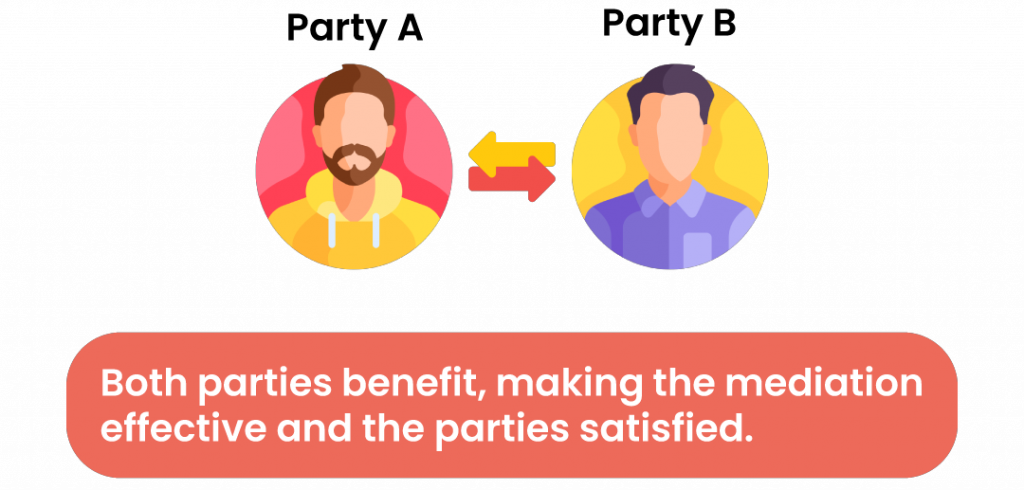
The mediator fulfils their goal of assisting others, and the contentment post a successful mediation is beyond words. The mediator must always practise integrity which meets the highest standards of professional ethics. This will help a mediator stay connected to the profession and maintain a balance in their life through finding tranquillity.
Mediation and communication
Lawyers and other professionals occasionally view a request for resolution via mediation as an attack on their professional dignity. As lawyers, we know legal processes, and we consider it our responsibility to fight for our client’s rights and demands. We often overlook our intrinsic ability to resolve conflicts through communication as a result of our vast knowledge and experiences. When disagreements turn into legal battles, there is often hardly any communication between the parties, leaving little room for collaboration.
It is crucial to recognise the importance of communicating effectively and respectfully. This often determines how people interact in the workplace and wider community. Likewise, overcoming unclear and conflictive circumstances is invaluable. At the end of the day, it’s all about maintaining relationships.
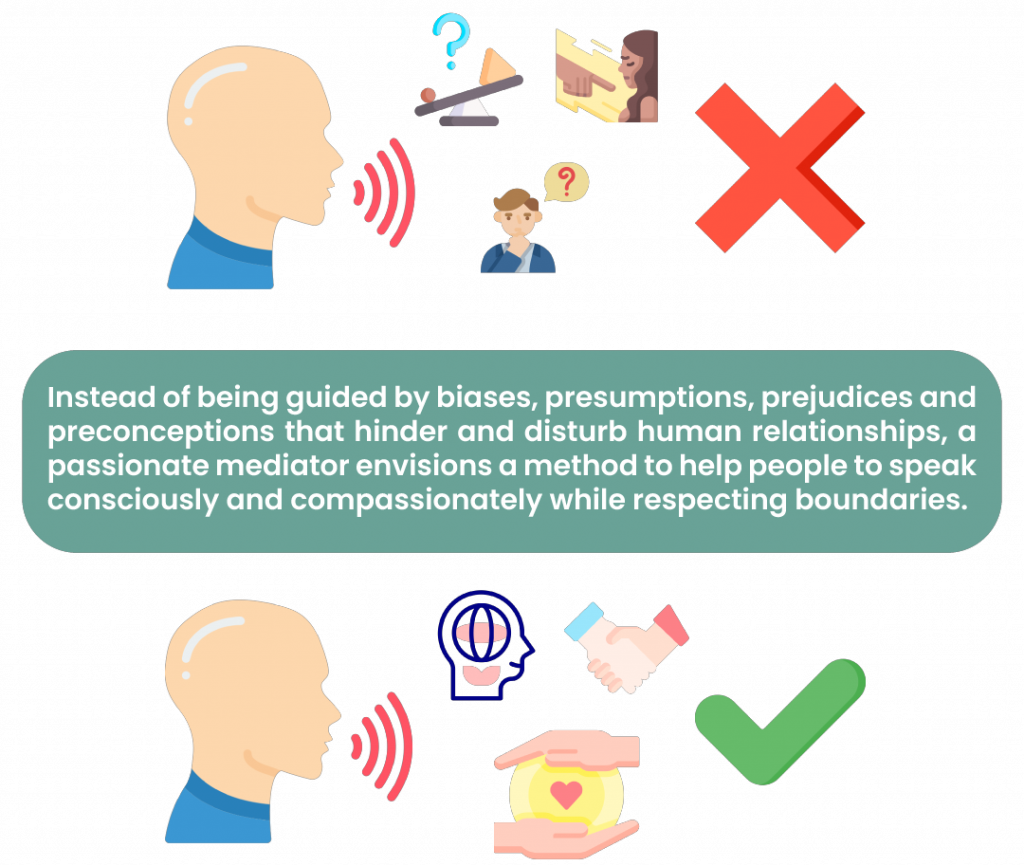
The important role of mediators in society
The zeal for helping others is genuinely aligned with the purpose of mediation. A mediator not only helps reduce the burden of the court but focuses on the problem that parties tangle themselves in. It’s a platform where parties are heard and it helps them focus on their underlying interest in the dispute. As a mediator, a person is not only trained to look at the problem and help parties resolve it but is also skilful in the art of communication. The mediator’s skill lies in moving the parties from a position-based approach to the possibility of ideas for resolving the dispute while understanding their body language, emotions, etc. As humans, we never stop changing and evolving. This only makes the mediator’s job more challenging as it motivates them to find a way to facilitate a dialogue space for the parties. For mediators, their work is often a meaningful path and helps them find peace within themselves as well as align with their purpose to be in the legal profession.
We, as mediators, believe in the potential of meaningful, constructive, conscious, and compassionate dialogues to reduce unintended effects, overcome uncertainty and disruption, and enhance our working systems so that well-being is expressed everywhere in the community. Mediation is a method of lowering interpersonal friction and generating caring and meaningful conversations that consider how individuals feel in every ecosystem.
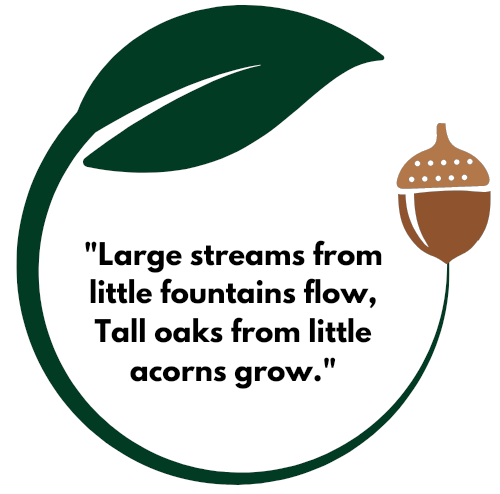
As quoted in the above poem by David Everett, the biggest learning from the mediation process is that no matter the magnitude of the conflict, genuine hard work always pays off, and is eventually reflected in our jobs as successful mediators.
Vaibhavi Khuthia, Advocate & Mediator, handles Mediation at Presolv360. You can reach her at vaibhavi@presolv360.com.
Shikha Mehra, Advocate & Mediator, is a practising Advocate at the Delhi High Court and a freelance mediation consultant. You can reach her at mehra7shikha@gmail.com.
Adapted from Young Mediator — Finding Inner Peace, originally published in The AOI Journal, Issue 3 in August 2022.

